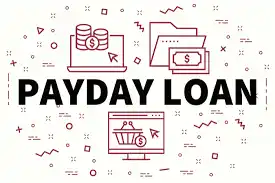How to Manage the Debt You’ve Incurred

Dealing with debt can be challenging, but it’s a situation that many individuals find themselves in at some point in their lives.
Whether it’s credit card debt, student loans, or other financial obligations, effective debt management is crucial for achieving financial stability.
List of practical strategies on how to manage the debt you’ve incurred.
1. Assess Your Debt
The first step in managing your debt is to understand the full scope of your financial obligations.
Create a detailed list of all your debts, including the type of debt, outstanding balances, interest rates, and monthly minimum payments.
This will provide you with a clear overview of your financial situation.
2. Create a Budget
A well-structured budget is a powerful tool for managing debt. Analyze your monthly income and expenses to identify areas where you can cut back on spending.
Allocate a portion of your income to debt repayment, ensuring you prioritize paying off high-interest debts first.
3. Explore Debt Repayment Strategies
There are several strategies for tackling debt, and the most suitable one depends on your circumstances. Two common approaches include:
a. Snowball Method: Start by paying off the smallest debt while making minimum payments on other debts. Once the smallest debt is cleared, move on to the next smallest, creating a snowball effect.
b. Avalanche Method: Focus on paying off debts with the highest interest rates first. This approach saves you more money in the long run by reducing the overall interest you pay.
4. Consider Debt Consolidation
Debt consolidation involves combining multiple debts into a single loan with a lower interest rate.
This simplifies your debt management and can potentially reduce your monthly payments.
However, it’s crucial to research and choose a reputable lender or program.
5. Negotiate with Creditors
If you’re struggling to make payments, don’t hesitate to contact your creditors. Many creditors are willing to work with you to establish more manageable payment plans or reduce interest rates, especially if you’re facing financial hardship.
6. Build an Emergency Fund
To prevent future debt accumulation, create an emergency fund. Having savings set aside for unexpected expenses can prevent you from relying on credit cards or loans during challenging times.
7. Seek Professional Help
If your debt situation becomes overwhelming, consider seeking assistance from a credit counselling agency or a financial advisor.
They can provide guidance on debt management strategies and help you develop a personalized plan.
FAQs
Can I negotiate with creditors to lower my debt?
Yes, many creditors are open to negotiation. You can contact them to discuss options like reduced interest rates, extended payment terms, or settlement offers to lower your debt burden.
What’s the difference between debt consolidation and debt settlement?
Debt consolidation involves combining multiple debts into one loan with a lower interest rate, making it easier to manage. Debt settlement, on the other hand, involves negotiating with creditors to settle a debt for less than the full amount owed.
Is it better to pay off high-interest debt or make minimum payments on all debts?
Paying off high-interest debt first (the avalanche method) is generally more cost-effective in the long run because it reduces the amount of interest you pay. However, some people prefer the psychological boost of paying off smaller debts first (the snowball method).
How can I prevent accumulating more debt in the future?
To prevent future debt accumulation, create a budget, build an emergency fund, and practice responsible spending habits. Avoid relying on credit cards for non-essential purchases and regularly review your financial goals to stay on track.
Also Read: What is the Difference Between Bad Debt and Good Debt?




